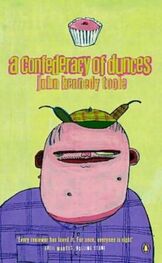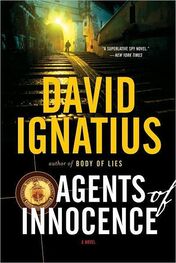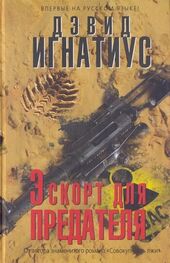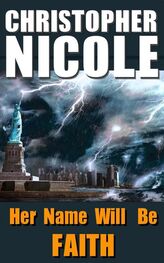Agriculture.—The Greek traditions of “the golden apples of the Hesperides” and “the golden fleece” point to Atlantis. The allusions to the golden apples indicate that tradition regarded the “Islands of the Blessed” in the Atlantic Ocean as a place of orchards. And when we turn to Egypt we find that in the remotest times many of our modern garden and field plants were there cultivated. When the Israelites murmured in the wilderness against Moses, they cried out (Numb., chap. xi., 4, 5), “Who shall give us flesh to eat? We remember the fish which we did eat in Egypt freely; the cucumbers, and the Melons, and the leeks, and the onions, and the garlic.” The Egyptians also cultivated wheat, barley, oats, flax, hemp, etc. In fact, if we were to take away from civilized man the domestic animals, the cereals, and the field and garden vegetables possessed by the Egyptians at the very dawn of history, there would be very little left for the granaries or the tables of the world.
Astronomy.—The knowledge of the ancients as to astronomy was great and accurate. Callisthenes, who accompanied Alexander the Great to Babylon, sent to Aristotle a series of Chaldean astronomical observations which he found preserved there, recorded on tablets of baked clay, and extending back as far as 2234 B.C. Humboldt says, “The Chaldeans knew the mean motions of the moon with an exactness which induced the Greek astronomers to use their calculations for the foundation of a lunar theory.” The Chaldeans knew the true nature of comets, and could foretell their reappearance. “A lens of considerable power was found in the ruins of Babylon; it was an inch and a half in diameter and nine-tenths of an inch thick.” (Layard’s “Nineveh and Babylon,” pp.
16,17.) Nero used optical glasses when he watched the fights of the gladiators; they are supposed to have come from Egypt and the East.
Plutarch speaks of optical instruments used by Archimedes “to manifest to the eye the largeness of the sun.” “There are actual astronomical calculations in existence, with calendars formed upon them, which eminent astronomers of England and France admit to be genuine and true, and which carry back the antiquity of the science of astronomy, together with the constellations, to within a few years of the Deluge, even on the longer chronology of the Septuagint.” (“The Miracle in Stone,” p.
142.) Josephus attributes the invention of the constellations to the family of the antediluvian Seth, the son of Adam, while Origen affirms that it was asserted in the Book of Enoch that in the time of that patriarch the constellations were already divided and named. The Greeks associated the origin of astronomy with Atlas and Hercules, Atlantean kings or heroes. The Egyptians regarded Taut (At?) or Thoth, or At-hotes, as the originator of both astronomy and the alphabet; doubtless he represented a civilized people, by whom their country was originally colonized. Bailly and others assert that astronomy “must have been established when the summer solstice was in the first degree of Virgo, and that the solar and lunar zodiacs were of similar antiquity, which would be about four thousand years before, the Christian era. They suppose the originators to have lived in about the fortieth degree of north latitude, and to have been a highly-civilized people.” It will be remembered that the fortieth degree of north latitude passed through Atlantis. Plato knew (” Dialogues, Phaedo,” 108) that the earth “is a body in the centre of the heavens” held in equipoise. He speaks of it as a “round body,” a “globe;” he even understood that it revolved on its axis, and that these revolutions produced day and night. He says—”Dialogues, Timaeus”—”The earth circling around the pole (which is extended through the universe) be made to be the artificer of night and day.” All this Greek learning was probably drawn from the Egyptians.
Only among the Atlanteans in Europe and America do we find traditions preserved as to the origin of all the principal inventions which have raised man from a savage to a civilized condition. We can give in part the very names of the inventors.
Starting with the Chippeway legends, and following with the Bible and Phoenician records, we make a table like the appended:
-----------+----------------------------+
The Invention or Discovery.
The Race.
The Inventors.
-----------+----------------------------+
Fire
Atlantean
Phos, Phur, and Phlox.
-----------+----------------------------+
The bow and arrow
Chippeway
Manaboshu.
-----------+----------------------------+
The use of flint
”
”
-----------+----------------------------+
The use of copper
”
”
-----------+----------------------------+
The manufacture of bricks
Atlantean
Autochthon and Technites.
-----------+----------------------------+
Agriculture and hunting
”
Argos and Agrotes.
-----------+----------------------------+
Village life, and the
”
Amynos and Magos.
rearing of flocks
-----------+----------------------------+
The use of salt
”
Misor and Sydyk.
-----------+----------------------------+
The use of letters
”
Taautos, or Taut.
-----------+----------------------------+
Navigation
”
The Cabiri, or Corybantes.
-----------+----------------------------+
The art of music
Hebrew
Jubal.
-----------+----------------------------+
Metallurgy, and the use of
”
Tubal-cain.
iron
-----------+----------------------------+
The syrinx
Greek
Pan.
-----------+----------------------------+
The lyre
”
Hermes.
-----------+----------------------------+
We cannot consider all these evidences of the vast antiquity of the great inventions upon which our civilization mainly rests, including the art of writing, which, as I have shown, dates back far beyond the beginning of history; we cannot remember that the origin of all the great food-plants, such as wheat, oats, barley, rye, and maize, is lost in the remote past; and that all the domesticated animals, the horse, the ass, the ox, the sheep, the goat, and the hog had been reduced to subjection to man in ages long previous to written history, without having the conclusion forced upon us irresistibly that beyond Egypt and Greece, beyond Chaldea and China, there existed a mighty civilization, of which these states were but the broken fragments.
CHAPTER X.
THE ARYAN COLONIES FROM ATLANTIS.
We come now to another question: “Did the Aryan or Japhetic race come from Atlantis?”
If the Aryans are the Japhetic race, and if Japheth was one of the sons of the patriarch who escaped from the Deluge, then assuredly, if the tradition of Genesis be true, the Aryans came from the drowned land, to wit, Atlantis. According to Genesis, the descendants of the Japheth who escaped out of the Flood with Noah are the Ionians, the inhabitants of the Morea, the dwellers on the Cilician coast of Asia Minor, the Cyprians, the Dodoneans of Macedonia, the Iberians, and the Thracians.
These are all now recognized as Aryans, except the Iberians.
“From non-Biblical sources,” says Winchell, “we obtain further information respecting the early dispersion of the Japhethites or Indo-Europeans—called also Aryans. All determinations confirm the Biblical account of their primitive residence in the same country with the Hamites and Semites. Rawlinson informs us that even Aryan roots are mingled with Presemitic in some of the old inscriptions of Assyria. The precise region where these three families dwelt in a common home has not been pointed out.” (“Preadamites,” p. 43.) I have shown in the chapter in relation to Peru that all the languages of the Hamites, Semites, and Japhethites are varieties of one aboriginal speech.
Читать дальше






